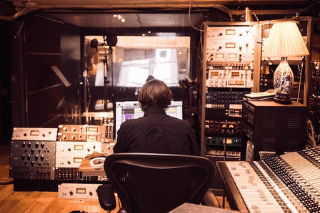Mastering the Art of Backline: A Technician’s Guide
In the world of live performances, a team of skilled professionals works behind the scenes to ensure that everything runs smoothly. Among these unsung heroes is the backline technician, a crucial member responsible for managing and maintaining the instruments and equipment used by musicians on stage. In this comprehensive guide, we will delve into the world of a backline technician, exploring their role, skills required, and the steps to becoming a successful professional in this field.
1. Understanding the Role of a Backline Technician
A backline technician’s primary role is to set up, maintain, and troubleshoot the instruments and equipment used by musicians during live performances. They work closely with bands, artists, and production teams to ensure that the onstage experience is seamless and uninterrupted. From guitars and drums to keyboards and amplifiers, a backline technician is well-versed in a wide range of musical instruments and equipment.
2. Essential Skills for Backline Technicians
To excel as a backline technician, several key skills are required. Firstly, a strong technical aptitude is crucial, as technicians must have a thorough understanding of the various instruments and equipment they work with. This includes knowledge of electronics, signal flow, and troubleshooting techniques.
Additionally, excellent communication and interpersonal skills are essential, as backline technicians often interact with musicians and other crew members. The ability to work well under pressure and adapt quickly to changing circumstances is also vital, as live performances can be unpredictable.
3. Education and Training
While formal education is not always a requirement to become a backline technician, pursuing relevant training and education can greatly enhance your skills and employability. Many institutions like New York University (NYU) offers programs in music technology or audio engineering that can provide a solid foundation for aspiring backline technicians.
Alternatively, online courses like those offered by Yellowbrick can be an excellent way to gain specialized knowledge in the field. These courses often cover topics such as equipment setup, maintenance, and troubleshooting techniques specific to backline technicians.
4. Building Experience and Networking
As with many creative industries, building experience and networking are crucial steps in becoming a successful backline technician. Consider volunteering or interning at local venues, music festivals, or recording studios to gain hands-on experience. This not only allows you to refine your technical skills but also provides valuable networking opportunities.
Attending industry events, conferences, and workshops is another effective way to network with professionals in the field. Building relationships with musicians, producers, and other crew members can open doors to potential job opportunities and collaborations.
5. Advancing Your Career
Once you have gained experience as a backline technician, there are several avenues for career advancement. Many professionals in this field go on to work for renowned touring companies, music venues, or become freelance technicians. With experience and a strong reputation, you may also have the opportunity to work with high-profile artists and bands.
Continued education and staying up-to-date with the latest advancements in music technology are essential for career growth. Attending specialized workshops or pursuing advanced courses can help you stay ahead of the curve and expand your skillset.
Key Takeaways:
- The role of a backline technician is to set up, maintain, and troubleshoot instruments and equipment used by musicians during live performances.
- Essential skills for backline technicians include technical aptitude, communication skills, and the ability to work well under pressure.
- Pursuing relevant education and training can enhance your skills and employability, with options like music technology programs at institutions like NYU.
- Building experience through volunteering or interning at local venues and networking with professionals in the field can open doors to opportunities.
- Advancement in the field can lead to working for renowned touring companies, music venues, or becoming a freelance technician.
- Continued education and staying up-to-date with advancements in music technology are crucial for career growth.
As you embark on your journey to become a backline technician, consider exploring the NYU x Billboard | Music Industry Essentials online course and certificate program. This comprehensive program offers valuable insights into the music industry and provides specialized knowledge that can complement your technical skills. By enrolling in this course, you can gain a competitive edge and further enhance your career prospects in the field. Remember, dedication, passion, and a commitment to continuous learning will pave the way to a successful career as a backline technician.








